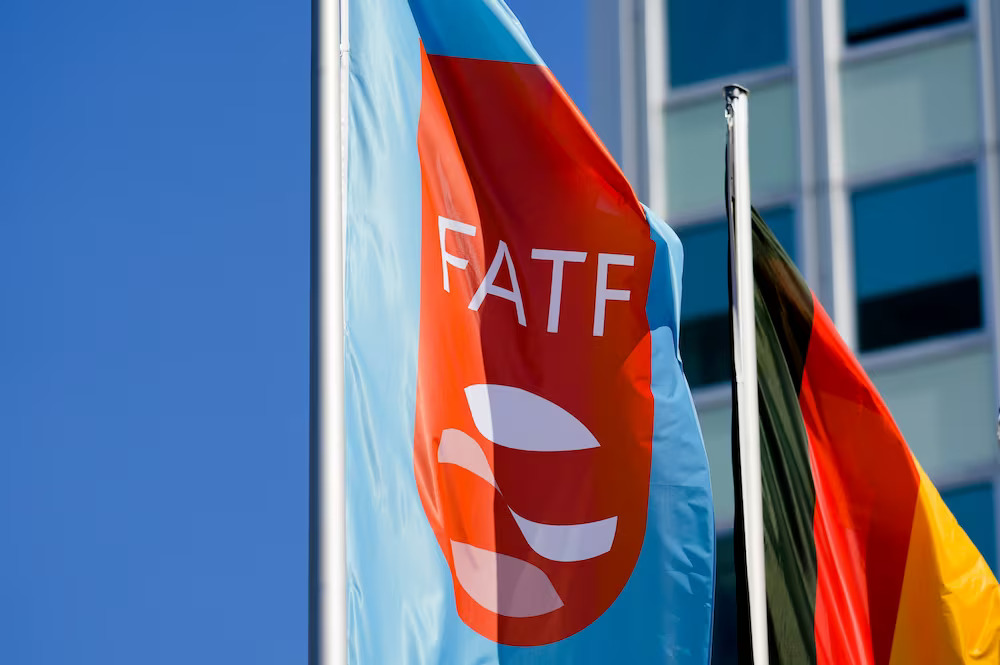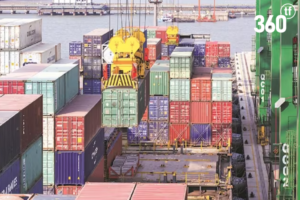The Financial Action Task Force, the global body that combats money laundering and terrorism financing, has removed the UAE from its “grey list” after significant reform progress.
The decision to take the UAE off the Paris-based watchdog’s increased monitoring list was made after a comprehensive on-the-ground review of the Arab world’s second-largest economy. It was placed on the grey list in 2022.
Barbados, Gibraltar and Uganda are the other three jurisdictions that are no longer on the grey list, the task force said on Friday at the conclusion of its three-day plenary meeting in Paris.
Sheikh Abdullah bin Zayed, Minister of Foreign Affairs, who is also Chairman of the Higher Committee Overseeing the National Strategy on Anti-Money Laundering and Countering the Financing of Terrorism, welcomed the move and expressed his appreciation to those who had worked to bring it about.
“This success is the outcome of significant and distinguished efforts by relevant ministries, the federal government and local entities,” he said.
“These collective endeavours serve to expedite the national strategy and action plan, achieve the directives and aspirations of the UAE’s leadership, aiming to further strengthen the country’s leading status and competitiveness, and advance its position globally as an economic, trading and investment hub.”
Abdulla bin Touq, Minister of Economy, said: “Reinforcing the effectiveness of our national system to combat money laundering and terrorism financing is regarded as a cornerstone for enhancing the UAE’s position as a global hub for trade and investment.”
They were among several Cabinet ministers to comment on Friday’s announcement, which was also welcomed by the Abu Dhabi Department of Economic Development and Abu Dhabi Global Market among others.
In its statement on Friday, the task force said: “The FATF plenary congratulated Barbados, Gibraltar, Uganda and the United Arab Emirates for their significant progress in addressing the strategic AML/CFT [anti-money laundering and combating the financing of terrorism] deficiencies previously identified during their mutual evaluations.”
“These jurisdictions had committed to implement an action plan to resolve swiftly the identified strategic deficiencies within agreed time frames. These countries will no longer be subject to the FATF’s increased monitoring process.”
Each of these jurisdictions will continue to co-operate with “the FATF-style regional body of which it is a member”, it said.
The UAE, along with the other three nations, have worked closely with the FATF to put in place compliance measures and tighter monitoring before the review.
They will continue to strengthen their anti-money laundering, counter-terrorism financing and counter proliferation financing [AML/CFT/CPF] regimes, it added.
At its October plenary meeting, the task force said the UAE has taken substantial steps according to its action plan, and approved the country for an on-site inspection, along with the other three jurisdictions.
The visit, the final step before removal from the grey list, included an evaluation of AML/CFT reforms and their enforcement, as well as the authorities’ commitment to ensure future continued execution of those initiatives.
The AML/CFT reforms instituted by the UAE as part of the FATF action plan include measures to assist with money-laundering investigations, the imposition of sanctions in cases of non-compliance at financial institutions and an increase in the number of prosecutions to combat money laundering.
At its latest plenary meeting, the FATF added Kenya and Namibia to the list of jurisdictions subject to increased monitoring.
The FATF, an initiative of G7 economies, was set up in 1989 and leads global action to tackle money laundering and terrorism and proliferation financing.
The 39-member body sets international standards to ensure national authorities can effectively clamp down on funds linked to drugs trafficking, illicit arms trade, cyber fraud and other serious crimes.
In total, more than 200 countries and jurisdictions have committed to adopt the FATF’s standards and they are assessed with the help of nine FATF Associate Member organisations and other global partners, including the IMF and World Bank.
The UAE has made significant progress in combating money laundering, the financing of terrorism and weapons proliferation over the past few years, passing strict laws and issuing a number of regulations to clamp down on financial crime.
In February 2021, the Executive Office of Anti-Money Laundering and Counter Terrorism Financing was established to oversee the enforcement of the UAE’s National AML/CFT Strategy and the National Action Plan.

Primarily a national policy organisation, the Executive Office has a wide-ranging mandate to ensure the UAE has a sustainable and resilient AML/CFT framework.
It co-ordinates with more than 80 government organisations and law enforcement agencies in the country to ensure compliance, Hamid Al Zaabi, its director general, told The National in an earlier interview.
The UAE seized and confiscated assets worth more than Dh1.3 billion ($354 million) from March to mid-July 2023, as it stepped up its fight against money laundering and the financing of terrorism.
The Emirates also issued fines totalling Dh199 million in the first half of last year to combat money laundering, which exceeded the combined total for 2022 (Dh76.2 million), 2020 (Dh8.4 million) and 2019 (Dh800,000), state news agency Wam reported in September, citing Mr Al Zaabi.
The UAE is fully committed to continue building its “long-term, sustainable AML/CFT capabilities to detect, investigate and understand money laundering and terrorist financing, and will continue to broaden its international co-operation”, he said at the time.
Courtesy: thenationalnews.com




